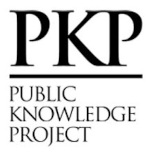Meaning in life in emerging adulthood: Contributions to developmental psychology
DOI:
https://doi.org/10.5020/23590777.rs.v23i2.e12968Keywords:
emerging adulthood, meaning in life, life cycle, developmental psychologyAbstract
Emerging adulthood refers to the period of human development between adolescence and adulthood, which includes individuals between the ages of 18 and 29. The main characteristics of emerging adulthood are identity exploration, instability, self-focus, feelings of ambivalence, and a period of possibility. Due to the difficulties and challenges inherent to this period, the mental health of emerging adults must be promoted. One of the ways to positively contribute to increasing and maintaining the mental health of this population is the development of a sense of meaning in life. This theoretical study aimed to present the importance of meaning in life for the healthy development of emerging adults and contribute to discussions on this topic in the light of developmental psychology. To this end, the definition and importance of emerging adulthood, the specificities of emerging adulthood in the Brazilian context, the implications of meaning in life for the mental health of emerging adults, and the studies on meaning in life in emerging adulthood are presented and discussed. The research results indicate that the presence of a sense of meaning in life in emerging adults is related to processes of personal growth, self-realization, and positive mental functioning and that promoting meaning in life in this population can strengthen commitment to life itself and protect against risky behaviors. It is suggested that interventions that consider the specificities of emerging adulthood in the Brazilian context with a focus on meaning in life be carried out to contribute to the prevention and promotion of mental health in this population.
Downloads
References
Arnett, J. J. (2000). Emerging adulthood: A theory of development from the late teens through the twenties. American
Psychologist, 55(5), 469-480. https://doi.org/10.1037/0003-066X.55.5.469
Arnett, J. J. (2004). Emerging adulthood: The winding road from the late teens through the twenties. Oxford University Press.
Arnett, J. J. (2006). Emerging adulthood in Europe: A response to Bynner. Journal of youth studies, 9(1), 111-123. https://doi.org/10.1080/13676260500523671
Arnett, J. J. (2011). Emerging adulthood(s): The cultural psychology of a new life stage. In: J. A. Lene, (Ed.), Bridging cultural and developmental approaches to psychology: New synthesis in theory, research, and theory (pp. 255-275). University Press. https://doi.org/10.1093/acprof:oso/9780199757176.001.0001
Arnett, J., Žukauskienė, R., & Sugimura, K. (2014). The new life stage of emerging adulthood at ages 18-29 years: Implications for mental health. The Lancet Psychiatry, 1(7), 569-576. https://doi.org/10.1016/S2215-0366(14)00080-7
Arnett, J. J., Dutra-Thomé, L., & Koller, S. H. (2018). Adultez emergente: A proposta de uma nova perspectiva desenvolvimental sobre a transição para a vida adulta no Brasil. In: L. Dutra-Thomé, A. S. Pereira, S. Nuñez, & S. H. Koller (Eds.), Adultez emergente: A proposta de uma nova perspectiva desenvolvimental sobre a transição para a vida adulta no Brasil (pp.13-23). Vetor.
Aspesi, C., Dessen, M., & Chagas, J. (2005). A ciência do desenvolvimento humano: Uma perspectiva interdisciplinar. In: M. Dessen & Á. Costa Jr. (Eds.), A ciência do desenvolvimento humano. Tendências atuais e perspectivas futuras (pp.19-36). Artmed.
Baggio, S., Studer, J., Iglesias, K., Daeppen, J. B., & Gmel, G. (2017). Emerging adulthood: A time of changes in psychosocial wellbeing. Evaluation & the Health Professions, 40(4), 383-400. https://doi.org/10.1177/0163278716663602
Brandão, T., Saraiva, L., & Matos, P. M. (2012). O prolongamento da transição para a idade adulta e o conceito de adultez emergente: Especificidades do contexto português e brasileiro. Análise Psicológica, 30(3), 301-313. https://doi.org/10.14417/ap.568
Bynner, J. (2005). Rethinking the youth phase of the life-course: The case for emerging adulthood? Journal of Youth Studies, 8(4), 367-384. https://doi.org/10.1080/13676260500431628
Camarano, A. A., Mello, J. L., Pasinato, M. T., & Kanso, S. (2004). Pathways towards adulthood: Brazilian youth’s multiple trajectories. Última década, 12(21), 11-50. https://doi.org/10.4067/S0718-22362004000200002
Côté, J. E., & Bynner, J. M. (2008). Changes in the transition to adulthood in the UK and Canada: The role of structure and agency in emerging adulthood. Journal of Youth Studies, 11(3), 251-268. https://doi.org/10.1080/13676260801946464
Curtis, W. J., & Cicchetti, D. (2003). Moving research on resilience into the 21st century: Theoretical and methodological considerations in examining the biological contributors to resilience. Development and Psychopathology, 15(3), 773–810. https://doi.org/10.1017/S0954579403000373
Damásio, B. F., & Koller, S. H. (2015). Meaning in life questionnaire: Adaptation process and psychometric properties of the Brazilian version. Revista Latinoamericana de Psicologia, 47(3), 185–195. https://doi.org/10.1016/j.rlp.2015.06.004
Dasen, P. R. & Mishra, R. C. (2000). Cross-cultural views on human development in the third millennium. International
Journal of Behavioral Development, 24(4), 428-434. https://doi.org/10.1080/016502500750037973
Dezutter, J., Waterman, A. S., Schwartz, S. J., Luyckx, K., Beyers, W., Meca, A., Kim, S. Y., Whitbourne, S. K., Lee, R. M.,
Hardy, S. A. Forthun, L. F., Ritchie, R. A., Weisskirch, R. S., Brown, E. J., & Caraway, S. J. (2014). Meaning in life in
emerging adulthood: A person-oriented approach. Journal of Personality, 82(1), 57-68. https://doi.org/10.1111/jopy.12033
Dogan, T., Sapmaz, F., Tel, F. D., Sapmaz, S., & Temizel, S. (2012). Meaning in life and subjective well-being among Turkish university students. Procedia - Social and Behavioral Sciences, 55(5), 612–617. https://doi.org/10.1016/j.sbspro.2012.09.543
Dutra-Thomé, L., & Koller, S. H. (2014). Emerging adulthood in Brazilians of differing socioeconomic status: Transition to adulthood. Paidéia, 24(59), 313-322. https://doi.org/10.1590/1982-43272459201405
Dutra-Thomé, L., & Koller, S. (2019). Emerging adulthood features in Brazilians from differing socioeconomic status. Acta de Investigación Psicológica, 9(3), 56-66. https://doi.org/10.22201/fpsi.20074719e.2019.3.322
Dutra-Thomé, L., Pereira, A. S., & Koller, S. H. (2016). O desafio de conciliar trabalho e escola: Características sociodemográficas de jovens trabalhadores e não-trabalhadores. Psicologia: Teoria e Pesquisa, 32(1). 101-109. https://doi.org/10.1590/0102-37722016011944101109
Erikson, E. H. (1968). Identity: Youth and crises. Zahar.
Facio, A., Resett, S., Micocci, F., & Mistrorigo, C. (2007). Emerging adulthood in Argentina: An age of diversity and
possibilities. Child Development Perspectives, 1(2), 115–118. https://doi.org/10.1111/j.1750-8606.2007.00025.x
Frankl, V. E. (1963). Man’s search for meaning: An introduction to logotherapy. Washington Square Press.
Frankl, V. E. (2010). Em busca de sentido: Um psicólogo no campo de concentração. Sinodal; Vozes. (Originalmente
publicado em 1946).
Galambos, N. L., & Martínez, M. L. (2007). Poised for emerging adulthood in Latin America: A pleasure for the privileged. Child Development Perspectives, 1(2), 119-114. https://doi.org/10.1111/j.1750-8606.2007.00024.x
García-Alandete, J. (2014). Does meaning in life predicts psychological well-being? An analysis using a Spanish version of the Purpose-in-Life Test and the Ryff’s scales (English). The European Journal of Couselling Psychology, 3(2), 89-98. https://doi.org/10.5964/ejcop.v3i2.27
García-Alandete, J., Marco, J. H., & Pérez, S. (2014). Predicting role of meaning in life on depression, hopelessness, and suicide risk among borderline personality disorder patients. Universitas Psychologica, 13(4), 15-25. https://doi.org/10.11144/Javeriana.UPSY13-4.prmi
García-Alandete, J., Martínez, E. R, Nohales, P. S., & Lozano, B. S. (2018). Meaning in life and psychological well-being
in spanish emerging adults. Acta Colombiana de Psicología, 21(1), 196-205. https://doi.org/10.14718/ACP.2018.21.1.9
Garcini, L. M., Short, M. B., & Norwood, W. D. (2013). Affective and motivational predictors of perceived meaning in life among college students. The Journal of Happiness & Well-Being, 1(2), 47-60. https://doi.org/10.5964/ejcop.v3i2.27
Gottlieb, B. H., Still, E., & Newby-Clark, I. R. (2007). Types and precipitants of growth and decline in emerging adulthood. Journal of Adolescent Research, 22(2), 132-155. https://doi.org/10.1177/0743558406298201
Heintzelman, S. J., & King, L. A. (2014). (The feeling of) Meaning-as-information. Personality and Social Psychology
Review, 18(2), 153–167. https://doi.org/10.1177/1088868313518487
Henriques, C. R., Jablonski, B., & Féres-Carneiro, T. (2004). A “geração canguru”: Algumas questões sobre o prolongamento da convivência familiar. Psico, 35(2), 195-205.
Hill, P. L., Edmonds, G. W., Peterson, M., Luyckx, K., & Andrews, J. A. (2016). Purpose in life in emerging adulthood:
Development and validation of a new brief measure. Journal of Positive Psychology, 11(3), 237-245. https://doi.org/10.1080/17439760.2015.1048817
Kessler, R. C., Adler, L. A., Barkley, R., Biederman, J., Conners, C. K., Faraone, S. V., Greenhill, L. L., Jaeger, S., Secnik, K.,
Spencer, T., Ustün, T. B., & Zaslavsky, A. M. (2005). Patterns and predictors of attention-deficit/hyperactivity disorder
persistence into adulthood: Results from the national comorbidity survey replication. Biological Psychiatry, 57(11),
-1451.
King, L. A., Hicks, J. A., Krull, J. L., & Del Gaiso, A. K. (2006). Positive affect and the experience of meaning in life. Journal of Personality and Social Psychology, 90(1), 179–196. https://doi.org/10.1037/0022-3514.90.1.179
Kins, E., Beyers, W., Soenens, B., & Vansteenkiste, M. (2009). Patterns of home leaving and subjective well-being in emerging adulthood: The role of motivational processes and parental autonomy support. Developmental Psychology, 45(5), 1416-1429. https://doi.org/10.1037/a0015580
Kleftaras, G., & Psarra, E. (2012). Meaning in life, psychological well-being, and depressive symptomatology: A comparative study. Psychology, 3(4), 337-345. https://doi.org/10.4236/psych.2012.34048
Kleiman, E. M., & Beaver, J. K. (2013). A meaningful life is worth living: Meaning in life as a suicide resiliency factor.
Psychiatry Research, 210(3), 934-939. https://doi.org/10.1016/j.psychres.2013.08.002
Krok, D. (2018). When is meaning in life most beneficial to young people? Styles of meaning in life and well-being among late adolescents. Journal of Adult Development, 25, 96-106. https://doi.org/10.1007/s10804-017-9280-y
Kublikowski, I & Rodrigues, C. (2016). "Kangaroo generations": New contexts, new experiences. Estudos de Psicologia (Campinas), 33(3), 535-542. https://doi.org/10.1590/1982-02752016000300016.
Leme, V. B. R., Coimbra, S., Dutra-Thomé, L., Braz, A. C., de Morais, G. A., Falcão, A. O., & Fontaine, A. M. (2021).
Preditores das crenças de autoeficácia de jovens frente aos papéis de adulto. Psicologia: Teoria e Pesquisa, 37, e373513. https://doi.org/10.1590/0102.3772e373513
Magnusson, D., & Cairns, R. (1996). Developmental science: Toward a unified framework. In R. B. Cairns, G. H. Elder Jr., & E. J. Costello (Eds.), Developmental science (pp.7-30). Cambridge University Press.
Masten, A., Obradovic, J., & Burt, K. E. (2006). Resilience in emerging adulthood. In: J. J. Arnett, & J. L. Tanner (Eds.),
Coming of age in the 21st century: The lives and contexts ofemerging adults (pp. 173–190). American Psychological
Association.
Mayseless, O., & Keren, E. (2014). Finding a meaningful life as a developmental task in emerging adulthood: The domains of love and work across cultures. Emerging Adulthood, 2(1), 63-73. https://doi.org/10.1177/2167696813515446
Mendonça, M., Andrade, C., & Fontaine, A.M. (2009). Transição para a idade adulta e adultez emergente: Adaptação
do Questionário de Marcadores da Adultez junto de jovens Portugueses. Psychologica, (51), 147-168.
https://doi.org/10.14195/1647-8606_51_10
Mendonça, M. & Fontaine, A. M. (2013). Perception mutuelle des relations entre les jeunes adulteset leurs parents: Distance, appuiet conflit. La Revue Internationale de l’Éducation Familiale, 33(1), 59-84. https://doi.org/10.3917/rief.033.0059
Monteiro, S., Tavares, J. & Pereira, A. (2009). Adultez emergente: Na fronteira entre a adolescência e a adultez. Revista@mbienteeducação, 2(1), 129-137. https://doi.org/10.26843/v2.n1.2009.545.p129%20-%20137
Murray, C. (2003). Risk factors, protective factors, vulnerability, and resilience: A framework for understanding and suporting the adult transitions of youth with high-incidence disabilities. Remedial and Special Education, 24(1), 16-26. https://doi.org/10.1177/074193250302400102
Niquice, F. L. A., Farias, B. G., & Nuñez, S. (2018). Adultez emergente em situações de risco e vulnerabilidade social. In L. Dutra-Thomé, A. S. Pereira, S. Nuñez, & S. H. Koller (Eds.), Adultez emergente: A proposta de uma nova perspectiva
desenvolvimental sobre a transição para a vida adulta no Brasil (pp. 239-251). Vetor.
Nuñez, S., Dutra-Thomé, L., Koller, S. (2021). What do you really want? Change in goals and life satisfaction during emerging adulthood in Brazil. Revista Latinoamericana de Psicología, 53, 30-36. https://doi.org/10.14349/rlp.2021.v53.4
Organização para a Cooperação e Desenvolvimento Econômico. (2015). Health at a glance 2015: OECD Indicators.
Psarra, E., & Kleftaras, G. (2013). Adaptation to physical disabilities: The role of meaning in life and depression. The European Journal of counselling psychology, 2(1), 79-99. https://doi.org/10.23668/psycharchives.2001
Reker, G. T., & Wong, P. T. P. (2012). Personal meaning in life and psychosocial adaptation in the later years. In P. T. P. Wong (Ed.), The human quest for meaning: Theories, research, and applications (2nd ed., pp. 433–456). Routledge.
Santos, M. C. J., Magramo, C., Jr., Oguan, F., Jr., Paat, J. N. J., & Barnachea, E. A. (2012). Meaning in life and subjective
well-being: Is a satisfying life meaningful?. Researchers World: Journal of Arts, Science & Commerce, 3(4), 32-40.
Schulenberg, J. E., Sameroff, A. J., & Cicchetti, D. (2004). The transition to adulthood as a critical juncture in the course
of psychopathology and mental health. Development and Psychopathology, 16(4), 799–806.
https://doi.org/10.1017/S0954579404040015
Smetana, J.G. (2010). Adolescents, families, and social development: How teens construct their worlds. John Wiley & Sons. https://doi.org/10.1002/9781444390896
Silveira, P. G., & Wagner, A. (2006). Ninho cheio: A permanência do adulto jovem em sua família de origem. Estudos de Psicologia, Campinas, 23(4), 441-453. https://doi.org/10.1590/S0103-166X2006000400012
Steger, M. F. (2012). Experiencing meaning in life: Optimal functioning at the nexus of well-being, psychopathology, and spirituality. In P. T. P. Wong (Ed.), The human quest for meaning: Theories, research, and applications (pp. 165–184). Routledge.
Steger, M. F., & Kashdan, T. B. (2007). Stability and specificity of meaning in life and life satisfaction over one year. Journal of Happiness Studies, 8(2), 161-179. https://doi.org/10.1007/s10902-006-9011-8
Steger, S. M., Oishi, S., & Kashdan, T. B. (2009) Meaning in life across the life span: Levels and correlates of meaning
in life from emerging adulthood to older adulthood. The Journal of Positive Psychology, 4(1), 43-52.
https://doi.org/10.1080/17439760802303127
Steger, M. F., Oishi, S., & Kesebir, S. (2011). Is a life without meaning satisfying? The moderating role of the search for
meaning in satisfaction with life judgments. The Journal of Positive Psychology, 6(3), 173-180.
https://doi.org/10.1080/17439760.2011.569171
Vieira, A. C. S, & Rava, P. G. S. (2012). Ninho cheio: Perspectivas de pais e filhos. Psicologia: Teoria e Prática, 14(1), 84-96.
Zhong, J., & Arnett, J. J. (2014). Conceptions of adulthood among migrant women workers in China. International Journal of Behavioral Development, 38(3), 255-265. https://doi.org/10.1177/0165025413515133
Downloads
Published
How to Cite
Issue
Section
License
Copyright (c) 2022 Revista Subjetividades

This work is licensed under a Creative Commons Attribution-NonCommercial-ShareAlike 4.0 International License.
Para autores: Cada manuscrito deverá ser acompanhado de uma “Carta de submissão” assinada, onde os autores deverão declarar que o trabalho é original e inédito, se responsabilizarão pelos aspectos éticos do trabalho, assim como por sua autoria, assegurando que o material não está tramitando ou foi enviado a outro periódico ou qualquer outro tipo de publicação.
Quando da aprovação do texto, os autores mantêm os direitos autorais do trabalho e concedem à Revista Subjetividades o direito de primeira publicação do trabalho sob uma licença Creative Commons de Atribuição (CC-BY), a qual permite que o trabalho seja compartilhado e adaptado com o reconhecimento da autoria e publicação inicial na Revista Subjetividades.
Os autores têm a possibilidade de firmar acordos contratuais adicionais e separados para a distribuição não exclusiva da versão publicada na Revista Subjetividades (por exemplo, publicá-la em um repositório institucional ou publicá-la em um livro), com o reconhecimento de sua publicação inicial na Revista Subjetividades.
Os autores concedem, ainda, à Revista Subjetividades uma licença não exclusiva para usar o trabalho da seguinte maneira: (1) vender e/ou distribuir o trabalho em cópias impressas ou em formato eletrônico; (2) distribuir partes ou o trabalho como um todo com o objetivo de promover a revista por meio da internet e outras mídias digitais e; (3) gravar e reproduzir o trabalho em qualquer formato, incluindo mídia digital.
Para leitores: Todo o conteúdo da Revista Subjetividades está registrado sob uma licença Creative Commons Atribuição (CC-BY) que permite compartilhar (copiar e redistribuir o material em qualquer suporte ou formato) e adaptar (remixar, transformar e criar a partir do material para qualquer fim) seu conteúdo, desde que seja reconhecida a autoria do trabalho e que esse foi originalmente publicado na Revista Subjetividades.





















